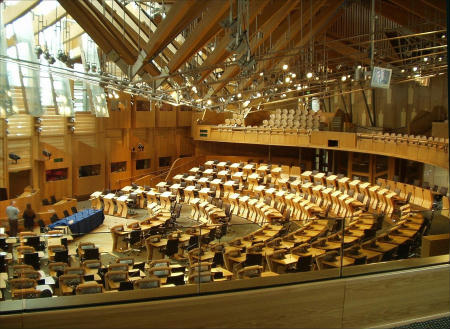Housing campaigners call for eviction ban to be made permanent

The Scottish Government’s ban on evictions should not end with the coronavirus lockdown, MSPs have heard.
Throughout the winter lockdown, landlords in Scotland were not allowed to evict tenants from properties in most circumstances, extending the policy already in place through emergency coronavirus laws which meant eviction proceedings could not begin.
After an extension to this ruling was announced in January, the policy may end this month.
However, Shelter Scotland said the measures should remain for some time to come, so the full economic impact, particularly on workers and their jobs, is understood, The Press and Journal reports.
Alison Watson, director of Shelter Scotland told the Scottish Parliament’s COVID-19 Committee: “I think there’s a real sense for us of the worst is still to come for a lot of people who rent. So I don’t think we can have the ending of eviction measures just when we come out of lockdown.
“I think we need to understand what is the full extent of the economic fallout and consequences for people in terms of jobs and income going forward before we can make definite measures.”
Ms Watson also said there could be a chance for Scotland to reshape its already world-leading housing policy and make it even better. She said: “I think there’s an opportunity for us to be more progressive here.
“Scotland has a fantastic track record on housing rights, we have internationally recognised housing rights – they are the most progressive housing rights in the world.
“So I think there’s an opportunity to say, through the lens of those progressive rights, how do we want evictions to be managed?”
Discussing rent arrears, one of the major causes of evictions, Ms Watson said there is an opportunity to ask why anyone should be evicted from their homes because of trouble paying their rent.
She continued: “Where are the arguments for ever evicting people simply on the grounds of rent arrears when we have such fantastic examples of good practice, both in our local authorities and in registered social landlords, where if you make changes like intervening early when somebody is only starting to get into difficulty, if you put money and debt advice for people, if you put benefits advice in place for people.
“If you put these measures in place, you can stop evictions happening in the first place.”






